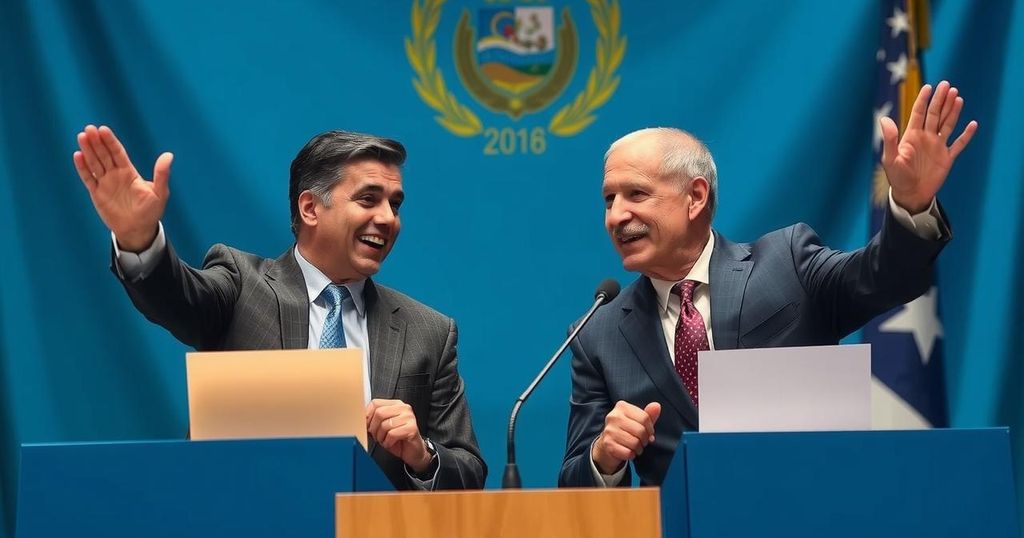Uruguay’s Elections Reflect Political Stability Amid Regional Turmoil

Uruguay’s recent presidential election featured a contest between two moderate candidates, with high voter turnout exceeding 88 percent. The election signifies a commitment to political stability amid Latin America’s tumultuous political climate, including parliamentary votes and a pivotal referendum on social security reform. Incumbent policies continue to receive public support, reflecting satisfaction with the current administration’s approach to governance.
In the South American nation of Uruguay, voters participated in a presidential election characterized by a competitive race between two moderate candidates on Sunday. Despite the intense political climate evident in many parts of Latin America, Uruguay’s election stands out for its adherence to democratic principles and political stability. Approximately 2.7 million eligible voters participated in this process, which also included parliamentary elections and a referendum concerning reforms to the social security system. Electoral officials reported a remarkable turnout rate exceeding 88 percent, which is a testament to the country’s compulsory voting laws. The presidential contest was framed by broad consensus on many issues, with no significant expectations for transformative changes following the election. The current president, Luis Lacalle Pou, enjoys a commendable approval rating of 50 percent, demonstrating public satisfaction with the government’s approach to economic growth and policies. The candidates, Álvaro Delgado from the conservative coalition and Yamandú Orsi representing the center-left, share common ground on many policies, which has contributed to a relatively calm electoral atmosphere devoid of the vitriol common in other regional elections. The election also focused on a contentious referendum aimed at overhauling the social security system, which, if passed, would significantly shift fiscal resources and benefits. Both leading candidates have expressed opposition to this proposal, indicating potential political ramifications regardless of the voting outcome. The political landscape indicates a primarily moderate trajectory for Uruguay, continuing its legacy as a stable democracy amid regional turmoil.
Uruguay has historically been viewed as a model democracy in Latin America, maintaining political stability amidst a backdrop of social and economic challenges. With a population of around 3.4 million, the nation has stood as a bastion against the divisive political climates increasingly seen in neighboring countries such as Argentina and Brazil. The current election reflects a unique moderation in political discourse with both leading candidates espousing business-friendly policies and attempting to address pressing social issues without exacerbating political tensions. The impending referendum on the social security system adds a layer of complexity to the election, as it could reshape government fiscal policies significantly.
In summary, Uruguay’s presidential election highlights a commendable example of political continuity and moderation within a region grappling with polarization and upheaval. With a high voter turnout and two candidates who largely agree on foundational issues, the state of political affairs in Uruguay continues to uphold democratic values. The outcome of the presidential race, coupled with the pending social security referendum, will be pivotal in shaping the economic and social landscape of the nation moving forward.
Original Source: www.pbs.org







